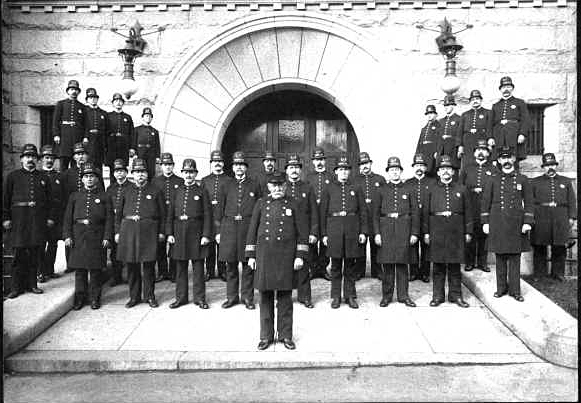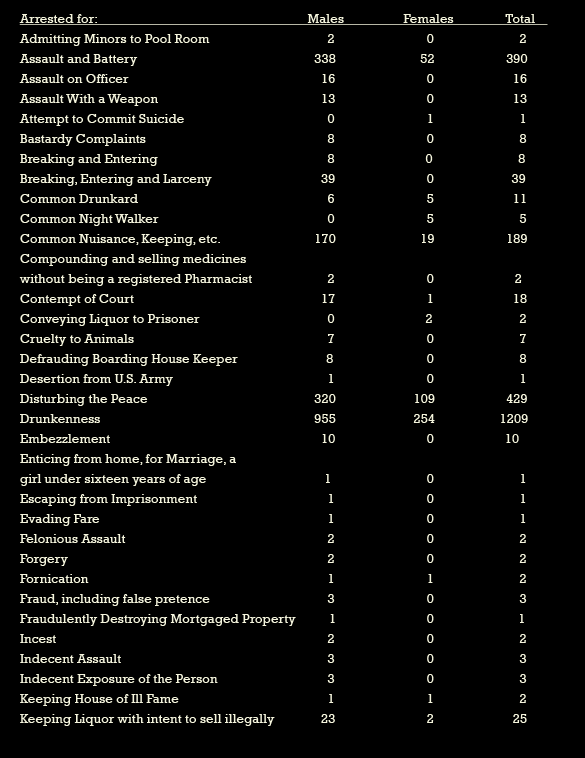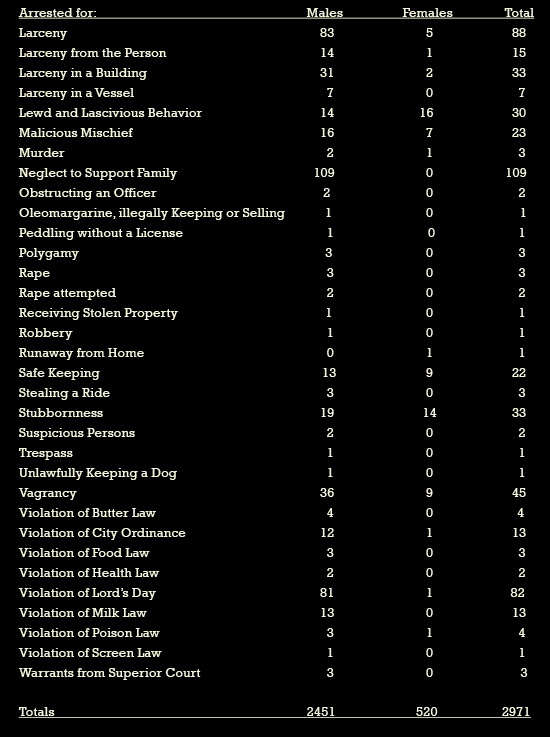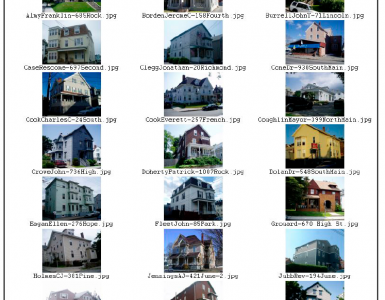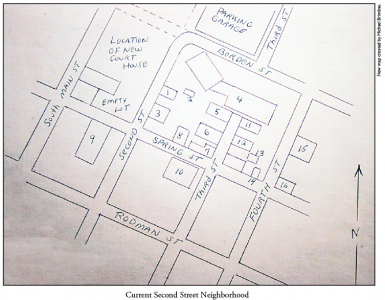by Harry Widdows
First published in August/September, 2007, Volume 4, Issue 3, The Hatchet: Journal of Lizzie Borden Studies.
The reference room at the Fall River Public Library contains a series of books, by year, titled “Fall River City Documents.” The various city departments each year sent a formal report to the Mayor’s office of expenditures and happenings in their department. For the year 1892, City Marshal Rufus B. Hilliard submitted the following report for persons arrested in the city during the year.
Of particular interest to Borden case followers is the entry made for “Murders.” There were two men and one woman arrested for Murder in 1892. Lizzie Borden would have been that one woman as she was arrested on August 11th, after the third and final day of the Inquest. There was also one woman arrested for violation of the poison law, not Lizzie Borden, however.
Drunkenness was by far the largest reason for arrests, accounting for some 40% of the total. Disturbing the peace at 14% followed that.
Other than Assault and Battery there were surprisingly few violent crimes.
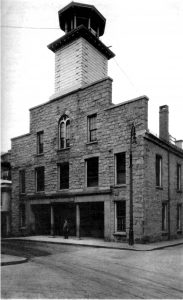
Several entries appear comical. One such entry is for “Oleomargarine, illegally Keeping or Selling.” In 1886 the U.S. Congress enacted a law placing restrictions on oleomargarine. One web site describes the “battle” between butter and oleomargarine: “The first prolonged and impassioned controversy in the Congress involving a pure food issue took place in 1886, pitting the reigning champion, butter, against a challenger, oleomargarine. Butter won, and oleomargarine was taxed and placed under other restraints that persisted on the Federal level until 1950.” Many of the earlier violations of this law involved the collection of the proper tax rate and the tampering with the color of the margarine so that it resembled, and was sold as, butter.
Violation of the “Screen Law” is another one that appears strange sounding. This explanation of the law appeared in Frank Leslie’s Illustrated Newspaper of May 22, 1886, describing the city of Boston’s attempt to control liquor sales: “ ‘The enforcement of the Sunday Liquor Law has been a gain; license fees have been paid, making the city of Boston richer by $422,865, during the last two years.’. . . Most of the prosecutions at present are for violations of the ‘screen’ law, which forbids the presence of anything in a saloon obstructing a view from the outside . . .” (i.e.: the saloon must not “screen” out the view of their activities from the police from the sidewalk).
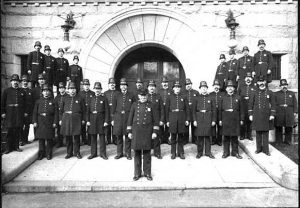
To place the arrest numbers in some context, the population of Fall River in 1892 was approximately 83,000. The 1892 Fall River City Directory lists a police force of approximately 90 men, counting officers. In addition to the police there were a larger number of Constables. There were only two women in the police department—the two matrons at the city jail, Hannah Reagan and Mary Russell.
All in all a fascinating view of the crimes the Fall River police faced on a daily basis.
Works Cited:
Fall River City Documents, 1892.
“FDA Consumer: The Long Struggle for the 1906 Law.” 22 Dec. 2005. US Food and Drug Administration. 4 August 2007 <http://www.cfsan.fda.gov/~lrd/history2.html>
“Practical Work for Temperance.” Frank Leslie’s Illustrated Newspaper 22 May 1886: 210.
“The oleomargarine law will not take effect until ninety days have elapsed from the date of its approval.” Rocky Mountain News 13 August 1886: 4.


